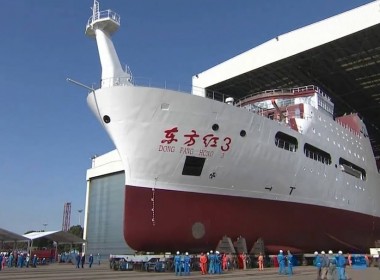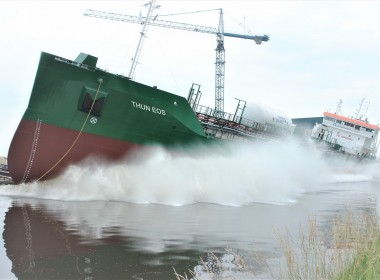COLUMN | Spotlight on manpower [Grey Power]
We like a good “shock” headline and the news that in 2025 there would be a shortage of 147,500 officers in the world fleet was guaranteed to attract the attention that headline writers crave.
This was the biggest eye-catcher in the latest five yearly Chamber of Shipping Manpower Report, which was, of course, deliberately designed to get industry policy-makers thinking about their manpower planning.
Historically, the maritime world has been hopeless at anticipating its requirements for people to keep its ships running. Some might suggest that it is a legacy of press gangs and crimps that has seen the industry reverberating from fearsome shortages to gross oversupply, rarely ever getting the balance right.
Of course it didn’t matter quite as much when one ship was much like another and relatively low skilled people could be quickly fashioned into competent seafarers.
Today we have an increasingly specialised shipping sector that each requires its own special skills, not helped by powerful charterers scrutinising manning policies and demanding “experience” in rank as a condition of ship employment. And it still requires some ten years to gain the qualifications to achieve the senior ranks afloat, and many more years of experience besides.
Thus, if the global industry is not to suffer the shortages of this magnitude contained in this forecast, it needs to address the matter immediately and do something dramatic about its training programmes.
Things have improved a bit – five years ago the report pointed out that one trainee for ten officers was a route to even worse shortages – now it is one trainee for seven, which is still far short of the ratio that will markedly reduce the expected shortage.
But the dear old shipping industry tends to stagger on regardless, paying lip-service to reports of this kind and mostly hoping that things will somehow correct themselves without much effort on their behalf. The wretched thing is that they too often get away with their flaccid response to potential crises.
The very first BIMCO/ISF report, which suggested manpower doom was just around the corner, was followed by the collapse of the Soviet Union and the arrival on the international market of thousands of well-trained and highly qualified East European officers.
Who knows, the same thing might just happen again, with the fall in oil prices and all those hugely well-qualified and experienced folk who ran the great fleets of laid-up offshore craft.
The big requirement of the industry, if this shortage is not to come to pass, is that there is lot more recruitment and far better retention, with more of the industry stepping up to the plate in terms of training. Sadly, if we consider that the industry can be divided into “poachers” and “trainers”, we can forecast that while the latter will read the report and act accordingly, the former will ignore it and just assume that business can be as usual, leaving others to do all the heavy lifting on the manpower front.
The report itself is a notably thorough piece of work, largely undertaken by Dearsley Marine Consulting. But it is impossible to ignore the industrial background, with organisations which do spend a king’s ransom on their training, such as major ship managers, having to jump through hoops to obtain berths for trainees.
There are still large numbers of owners who see nothing wrong in buying a ship without a single berth for a trainee or cadet aboard and, even if berths are available, will reject a ship manager’s entreaties to let them carry cadets. Frankly, these people should be named and shamed into behaving in a more responsible manner; they won’t change their ways otherwise.
It was a few years ago that the CEO of one of the biggest ship managers in the world said that if an owner would provide a training ship, he would operate it for free. There were, sadly, no takers.
But it is worth reading this report, for the substantial amount of information that is contained within. Rather than relying on governments to provide them with raw manpower data, the researchers have probed more deeply into the industry, gauged opinion from people right across the sector including that of serving seafarers and those on the shop floor.
As a result, we have learned something about motivation; what keeps people at sea and what drives them crazy. The report is interspersed with their verbatim remarks, which themselves can be quite revealing.
But the report is not a huge list of complaints – the views of people from all sides is surprisingly positive, which would not be the case in an industry which nobody wanted to join.
Nevertheless, it indicates all manner of challenges facing the whole industry. It is a global report, which is appropriate for an industry that recruits globally, but it is worth noting that there are very often enormous regional differences in employment opportunities and real crises, where shortages or over-capacity are to be found.
What a mess the industry would be in if the people of the Philippines suddenly decided that seafaring was not for them! Now that really would usher in a shortage that would make ship operators sit up and take notice.






